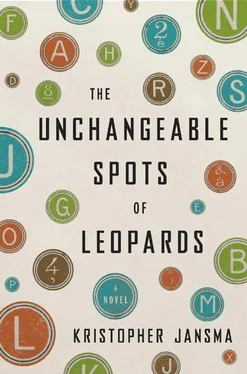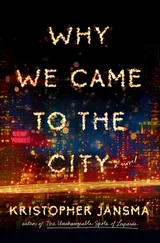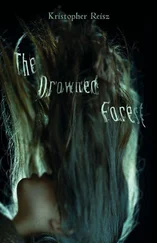On the first day of class, I threw on an old corduroy blazer and a button-down shirt and went uptown to the university. Thirty-five eager freshman faces sized me up as I walked into the room. “He seems young,” I heard someone whisper. “Is this a joke?” someone else asked. I began to sweat and flush red as they snickered. Standing there before their doubting eyes, something in me finally snapped. With all the rage only an unappreciated genius could muster, I slammed a stack of syllabi on the table.
“Who knows how much tuition costs at this school?” I thundered.
No one raised a hand. Everyone sat up straight, even the jocks in the back.
“Why am I not surprised?” I muttered. Truth be told: I didn’t know myself. Then I let out a companionable laugh — only two students in the room dared to smile back.
“If you want to learn about journalism, you’re not going to do it sitting in a classroom,” I barked. “Everybody stand up. You have twenty-five minutes to go out onto the city streets, find someone to interview, and get their life story. In exactly twenty-five minutes, come back here and be prepared to tell me everything there is to know about your subject. I’ll be quizzing you on the details.”
No one moved. One of the students who had smiled raised her hand. She, at least, was zipping up her bag. “What if you ask us about something that we don’t find out?”
“Then you make it up,” I said. “But if I don’t believe you, you fail.”
A few more people began sliding their notebooks into their bags. A boy with a Mets cap on backward raised his hand. “Isn’t that… whatchacall… inethical? Isn’t that, like, plagiarism?”
“No,” I said flatly. “ Plagiarism is when you steal someone else’s words and pass them off as your own. When you just make them up from nothing, it’s called fiction . We’ll discuss the difference more thoroughly when you all get back. Now you have twenty-four minutes.”
Five or six people jumped up and bolted for the door.
“Professor?” one girl called out. “Professor… uhm … I forget your name.”
“Tim… o-thy… Wal… lace… ” I said as I wrote it on the board in big chalk letters.
“Yeah. Ain’t you even gonna take attendance?”
“I’ll take attendance when you come back,” I said coolly, taking off my jacket and slinging it over my chair. Checking my gleaming gold wristwatch, I said, “ If you come back. Twenty-three minutes now.”
With that I sat down and watched the students filing out, looking at me as if I’d lost my mind. Maybe I had. All I knew was that I was someone I did not recognize, but it felt right. I liked me, this way. And twenty-three minutes later, every one of the thirty-five students was back, with pages of scribbled notes, all fighting to read first.
The rest is the rest. Timothy’s backup plan became mine — and with a little practicing of the scribble he called a signature, I started cashing his paychecks and paying his bills. At one time I suppose I planned to just get a teaching job of my own, with my own name. But a strange thought came back to me, which had first surfaced back in those dark, drunk days in July.
I’d been pondering my chosen vocation — to write fiction and to slant the truth — to tell lies, for a living. But I wasn’t good enough at it. At least not in writing yet. No one believed me. And then my mind wandered back to little Deshawn, sitting at his desk avoiding the roaches, filling in those little Scantron bubbles with his yellow number-two pencil. He’d said that taking the tests was like evolution in action — only instead of the brightest and most capable students surviving, it seemed that victory fell to those who could scam the test, learn the rhythms of the answers, the tenor of trick questions, take educated guesses, and budget their time. The teachers had stopped teaching science and English and started teaching how to pass the test .Was it gaming the system? Or was it an evolutionary necessity?
The best novelists make you believe, as you read, that their stories are real . You hold your breath as Raskolnikov approaches his neighbor with a raised ax. You weep when no one comes to Gatsby’s funeral. And when you realize you are being so well fooled, you love the author all the more for it. Up in front of my students each day as Professor Timothy Wallace, I discovered the thrill of getting away with the manufacturing of reality. I had a way not only to pay the bills, but to become a better purveyor of make-believe. I had put myself into an evolutionary situation wherein my failure to deceive would result in disaster. Wherein I’d be forced to risk everything. Where I’d be rewarded for my successes at dishonesty. And the greatest reward was that I barely thought of my old life anymore. Only when I saw a certain novel by Jeffrey Oakes in the bookstore windows, or caught a headline about Luxembourg as I passed by a newsstand.
Oh, yes, that’s right. You didn’t believe me when I said that part, before. Now you’re not so sure, are you? It’s perfectly fine. I understand. After all, you’re talking to someone who, really, for a time, believed he was Professor Timothy Wallace. So much so that, one day, when I opened the mailbox to discover that the United States of America was proud to accept Timothy Wallace’s credentials for dual citizenship, I felt genuine relief, as if I were the one avoiding deportation. I signed Timothy’s name on the dotted lines as if it were my very own. I tell you, at that time, I’d all but forgotten it wasn’t. A few weeks later, when I went down to Hudson Street and collected a crisp blue passport, it hardly occurred to me that I was committing a federal crime. I bought myself a hot dog, afterward, to celebrate.
I’d made something of myself. Or someone’s self, anyway. I was actually a wonderful teacher — if I only channeled equal parts Mr. Kotter, Full Metal Jacket , and Professor Keating from Dead Poets Society . At the end of the first semester, my students filled out their Scantron evaluations of my performance, deigning me “Excellent” with unanimity of graphite. Over the holiday break, I dug out the old novella I’d written and, for the first time, it felt more like fiction than fact. When I returned to my post for the spring, I took on four new sections. This time the students were expecting the theatrics — they had heard about me, it seemed. They had heard about the professor who tells it “like it is.”
The brilliance of teaching for a large university department is that it involves surprisingly little oversight. If I’d tried to be a middle school teacher for little Deshawn and Jessina, I’d have been fired in a heartbeat. Little children still tell their parents what they do at school all day. The Department of Education hands down a curriculum, and textbooks, and any deviation from the prescribed course is noted. But at the university, oversight only ever came once a semester, when a member of the tenured faculty materialized to sit in on my class. And this faculty member was required to give advance notice, so it was simple to merrily plan more mundane and traditional activities for that day. The students played along — happy to help me in damning “the man.”
In the end, my flaw was that I was really too good. My name came to the chair’s attention when I was overwhelmingly voted Teacher of the Year by the freshman class. This lifted my name out of the crowd of nearly a hundred adjunct professors and, that same night, when the chair saw the real Timothy Wallace on the BBC, reporting on corruption in the UN foreign aid program, he finally put two and two together.
My little conversation with the chair in the hallway was uninteresting — he called me a sociopath, which, I’ll admit, did sting — but otherwise, he seemed simply flabbergasted that I had so thoroughly charmed the hundreds of university students in my charge. An uninspired dinosaur himself, he asked me, more than a few times, none to my surprise, how I’d done it. I’m sure you’d like to know the same. So here’s the truth:
Читать дальше











